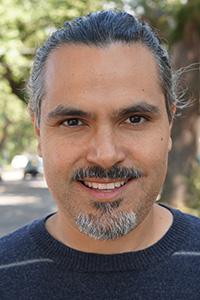
Marko Salvaggio
School of Professional Advancement
Professor of Practice, Social Sciences, Program Director, Tulane SoPA-Operation Restoration College-in-Prison
(he/him)
msalvaggio@tulane.edu
Education & Affiliations
- PhD, Sociology, University of Nevada, Las Vegas
Biography
Dr. Marko Salvaggio is Professor of Practice in the Social Sciences Program at the Tulane School of Professional Advancement (SoPA). He is also Director of the Tulane SoPA College in Prison at the Louisiana Correctional Institute for Women (LCIW), in partnership with Operation Restoration. Prior to Tulane, Dr. Salvaggio was Assistant Professor of Sociology and Environmental Studies at Goucher College in Baltimore. He also taught undergraduate courses at the Maryland Correctional Institution – Jessup (MCIJ), as part of the Goucher Prison Education Partnership (GPEP). Dr. Salvaggio held applied research positions at the U.S. Centers for Disease Control and Prevention (CDC) and the International Gaming Institute (IGI) as well, and he served on the Diversity and Inclusion Council for the U.S. Embassy in Mozambique.
A sociologist by training, Dr. Salvaggio’s areas of specialization include: the sociology of climate change; urban and community studies; theories of race, ethnicity, and Indigeneity; environmental justice; global inequality; and mobilities studies. Dr. Salvaggio has designed and taught several social sciences courses that draw from his areas of specialization. At Tulane SoPA, he regularly teaches Comparative Race and Ethnic Relations (PASO 2100) and Environment & Society (PASO 2200).
Dr. Salvaggio’s two main research areas include: (1) climate- and water-related urban issues and (2) ecotourism development. Dr. Salvaggio studies climate change governance and adaptation in coastal urban communities within cyclone/hurricane prone regions, including in Southeastern Africa, the Caribbean, and the U.S. Gulf South. He identifies how communities cope with perceived insecurity arising from increasing floods and droughts, as well as the lack of access to safe water and sanitation. For over a decade, Dr. Salvaggio has tracked international travel patterns in Central America, including backpacking/hosteling and agrotourism/ecotourism development. He has conducted extensive ethnographic research in Central America to learn about the central ideologies, practices, and contradictions that drive ecotourism development throughout the region.
Along with his wife and two children, Dr. Salvaggio loves living in New Orleans, eating at Nola restaurants, second lining, and running along the levee near his home in Algiers. He also absolutely loves coffee!
Recent Blog Post
“Climate crisis or social crisis?” posted on Transforming Society: A Space Where Research, Evidence and Critique Can Create Positive Social Change
Selected Publications
Salvaggio, M. 2023. “The Backpacker Hostel: Performing and Experiencing ‘Place’ in Central America.” In Backpacking Culture and Mobilities: Independent and Nomadic Travel, edited by M. O’Regan. Channel View Publications.
Salvaggio, M. 2022. “Reimagining the Climate Crisis as a Social Crisis.” In Global Agenda for Social Justice: Solutions 2022, edited by G. Muschert, K. Budd, H. Dillaway, D. C. Lane, M. Nair, and J. A. Smith. Bristol University Press.
Salvaggio, M. 2022. “The Backpacker Hostel in Central America: Experiencing Escape, Community, and Tourism.” Studies in Symbolic Interaction (Special Issue on Subcultures) 54:113-135.
Gottschalk, S. and M. Salvaggio. 2015. “Stuck Inside of Mobile: Ethnography in Non-Places.” Journal of Contemporary Ethnography 44:3-33.
Salvaggio, M., R. Futrell, C. D. Batson, and B. G. Brents. 2013. “Water scarcity in the desert metropolis: How environmental values, knowledge and concern affect Las Vegas residents’ support for water conversation policy.” Journal of Environmental Planning and Management 57:588-611.
Salvaggio, M. and R. Futrell. 2012. “Environment and Sustainability in Nevada.” UNLV Center for Democratic Culture Publications 1-32.
Areas of Expertise
- the sociology of climate change
- urban and community studies
- theories of race
- ethnicity, and Indigeneity
- Environmental justice
- global inequality and mobilities studies
